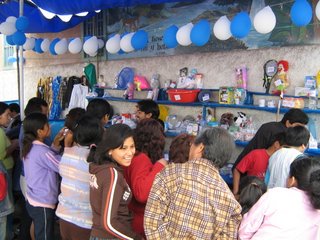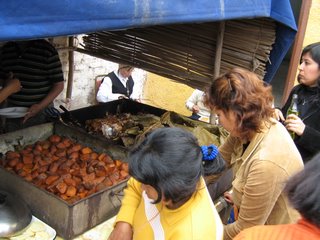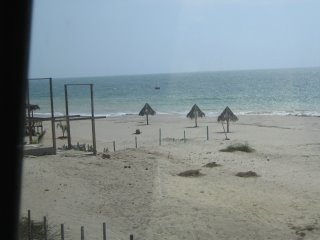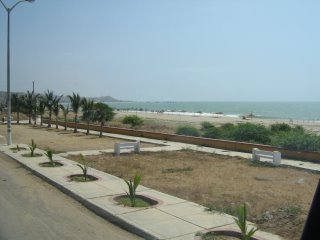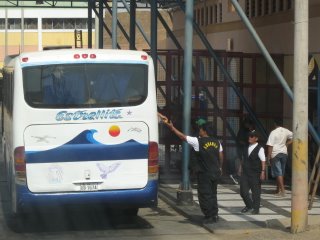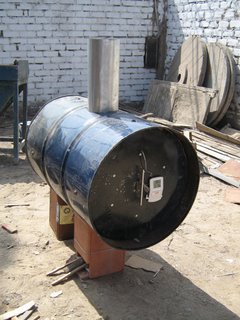
I´ve really missed being able to bake my own bread since I got here. The LPG gas stove that I borrowed from friends doesn´t have an oven, and anyway a gas oven would be very expensive to operate. So I´ve been working on building a wood-burning oven using some recycled barrels. The design is from Aprovecho Research Institute, a group that also designed the wood-burning stoves that I used to build in Central America.
The oven consists of one barrel within another, with holes in the bottom and top of the outer barrel for the smoke to enter and exit, and some baffles made of fiberglass insulation covered with aluminum foil that form a pathway for the smoke so that it makes contact with most of the surface of the barrel. That little white gadget on the door of the oven is a fancy digital thermometer that I brought with me from the U.S. I´m still looking for a cheap, simple dial-type thermometer to reduce the cost.
The oven still isn´t quite finished (it
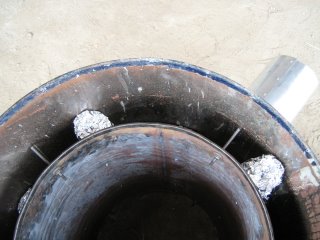 needs a layer of fiberglass insulation on the outside, covered by another barrel that is split on the side), but it´s far enough along for a test. Last weekend I baked a couple loaves of banana bread and served it to the neighbors.
needs a layer of fiberglass insulation on the outside, covered by another barrel that is split on the side), but it´s far enough along for a test. Last weekend I baked a couple loaves of banana bread and served it to the neighbors. 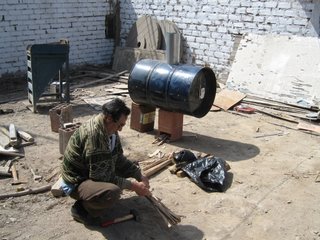
This is the man from whom I rent my apartment, Miguel, who always lends me a hand with my experiments. Here he´s chopping wood to feed the fire.

